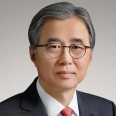In a recent interview with foreign journalists, Russian President Vladimir Putin engaged in shameless sophistry by claiming that, “Without threats, the [North Korean] nuclear issue will gradually be resolved […] the North Koreans agreed not to carry out [nuclear] tests and even dismantled their test site. Not only they gave their consent […] they actually did it. What did they get in return? The United States unilaterally violated these agreements.”
In recent times, Russia, together with China, has asserted that the North Korean nuclear issue has not been resolved because North Korea’s “legitimate security concerns” are not being respected. Yet, from 2006 to 2017, Russia supported 11 UN Security Council resolutions imposing sanctions on North Korea, including bans on nuclear and ballistic missile tests, arms exports and imports, and financial transactions. Russia’s irresponsible and two-faced attitude of paying lip service to sanctions while secretly protecting North Korea shows that Russia is neglecting its duties and responsibilities as a permanent member of the UN Security Council and is instead regressing into a mouthpiece for North Korea.
The former Soviet Union established the North Korean regime by backing Kim Il Sung, a captain in the Red Army. It built the North Korean army by sending the Soviet Advisory Group to train over 10,000 North Korean soldiers and also supplied aircraft, tanks, artillery, and machine guns. When U.S. troops withdrew from South Korea in 1949 and the United States excluded South Korea from its defense perimeter in the Far East by declaring the “Acheson Line” in January 1950, Joseph Stalin approved the invasion of South Korea in April. This was an act of self-denial by a permanent member of the UN Security Council to fight against a UN force comprised of 22 countries. More recently, Russia also justified its invasion of Ukraine as protecting Russians living in Ukraine.
President Putin has stated that North Korea developed nuclear weapons because of external threats to the regime, but these so-called “external threats” are a fantasy. The United States considered reducing its military presence in Asia with the end of the Cold War between the Eastern and Western blocs in the early 1990s. However, it was not implemented due to suspicions about North Korea’s nuclear development. South Korea and the United States have stated that if North Korea abandons its nuclear weapons development, they will provide economic support and seek coexistence at any time. This stance is well reflected in the 1994 U.S.-DPRK Geneva Agreed Framework and the September 19 Joint Statement of 2005.
It was always North Korea that first broke these agreements. Despite promising to denuclearize as part of the 1994 Geneva Agreed Framework, North Korea admitted to having a uranium enrichment program during U.S. Assistant Secretary of State James Kelly’s visit to North Korea in October 2002. It was tantamount to confessing that it violated the denuclearization commitment immediately after the Geneva Agreed Framework. According to the September 19 Joint Statement, North Korea would abandon all nuclear weapons and existing nuclear programs and promptly return to the Nuclear Non-Proliferation Treaty (NPT). However, North Korea broke this promise by conducting its first nuclear test in October 2006 and it has since pushed ahead with five additional nuclear tests.
Shortly after the U.S.-DPRK summit in Singapore on June 12, 2018, U.S. President Donald Trump unilaterally declared a halt to ROK-U.S. combined military exercises, which led to most of these exercises being scaled back or suspended. For its part, North Korea declared the closure of the Punggye-ri nuclear test site prior to the Singapore summit in April 2018, and it detonated the entrance to the test site in May. However, North Korea has repaired the tunnels at Punggye-ri since 2022 and shown signs of preparing for additional nuclear tests, revealing that its actions were deceptive.
Reviewing the patterns of U.S.-DPRK negotiations to date reveals that what North Korea really wants is neither regime security nor denuclearization. Because the very existence of free and prosperous South Korea is the greatest political threat to Kim Jong Un, he seeks to achieve the reunification of the Korean Peninsula under the communist flag to secure the system of one-man rule, with the primary obstacle to this objective being the ROK-U.S. alliance and the presence of U.S. forces in Korea, which he aims to eliminate.
Since the 2019 summit between Kim Jong Un and Putin, Russia, along with China, has blocked resolutions condemning North Korea at the UN Security Council and obstructed any increase in sanctions. In March, Russia exercised its veto against the extension of the mandate for the Panel of Experts on the UN Security Council’s DPRK Sanctions Committee, thereby undermining the effectiveness of existing sanctions.
From Russia’s perspective, forging stronger bonds with authoritarian regimes such as China and North Korea may appear to help President Putin’s long-term rule and strengthen its influence. North Korea has long been an international pariah and abnormal regime, but watching Putin visit North Korea to secure war supplies for his invasion of Ukraine brings to mind the saying that, all that falls does not have wings.
* The view expressed herein was published on June 18 in The Munhwa Il-bo and does not necessarily reflect the views of The Asan Institute for Policy Studies.

 Facebook
Facebook Twitter
Twitter